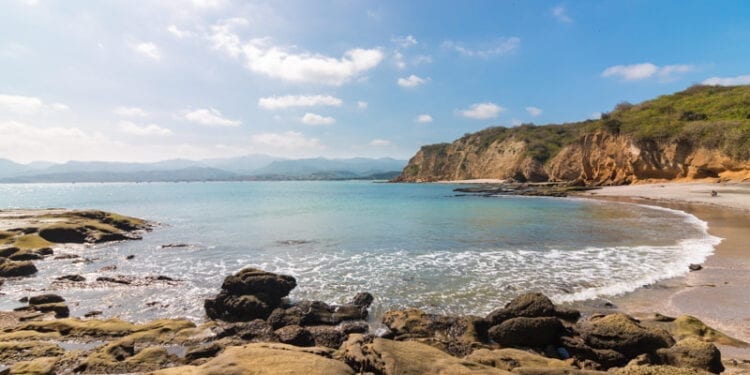It might be easy to get on board with the idea of retiring overseas…
But it’s not as easy to figure out where in the world you should pursue it.
Most people, faced with this tough question, make comparisons to help narrow things down. One of the most commonly asked questions we get at Live and Invest Overseas is “Which place is better?” Is it Panama or Costa Rica?… The south coast of Spain or the south coast of Portugal?… Does Thailand have the best opportunities forlow-cost beach living… or does Vietnam?
No place is inherently better or worse than the other. Which place is “better” depends entirely on you and your preferences, circumstances, and agendas. And although we can’t define those things for you, we can help you consider your options for reinventing your life in one destination relative to another.
In a recent issue of Overseas Living Letter, Editorial Director Sophia Titley pitted the world’s favorite retire-overseas havens against each other, examining the pros and cons at the country level. To give a more realistic view of what life is like in each place, in the issue she takes the time to zoom in on one town in each country and compare it to its counterpart in the other.
No place is perfect, everywhere has its pluses and minuses… but by going through the comparisons, you’ll come away with a stronger se nse of which haven is the best choice for you.
Let’s take a quick look at some of the general country comparisons…
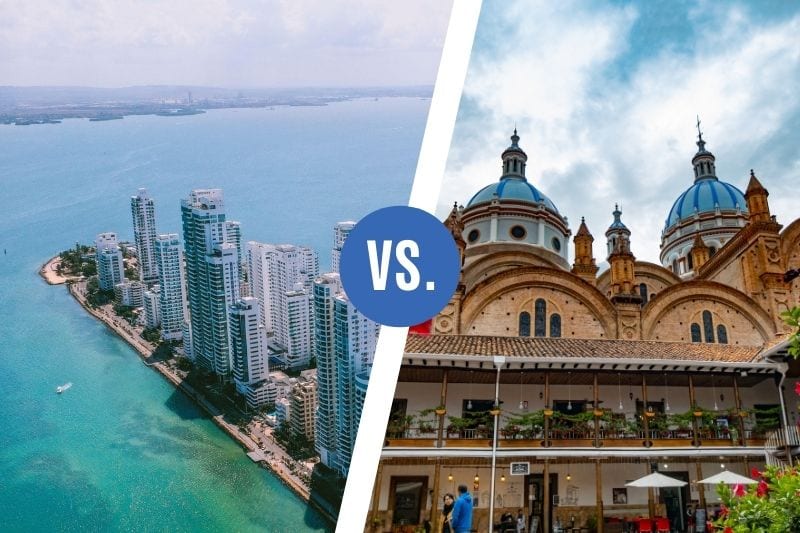
| Colombia Pros: |
Ecuador Pros: |
- Top investment haven with enormous upside
- Best health care in Latin America
- U.S. dollar to Colombian peso currency advantage
- Strong economy
- Welcoming locals, interesting culture
- Diversity of lifestyle options (Euro-chic to Caribbean-beach, Spanish-colonial to rural living)
- Dual coastlines: Caribbean and Pacific
- Residency is inexpensive, quick, and easy to attain (you can even process the application yourself)
- No criminal background check required for residency
- Fast paths to citizenship
|
- Renowned for its low cost of living and real estate
- Geographically diverse country
- Uses U.S. dollar, meaning no currency exchange risk
- Low tax jurisdiction
- Welcoming locals, interesting culture
- Residency is inexpensive and easy to attain
- Senior benefits program includes discounts on goods and services and line-jumping ability
- Residency affords one the same rights as a citizen and the right to import household effects duty-free
- Fast paths to citizenship
- Well-established expat communities in
Cuenca and Loja
|
| Colombia Cons: |
Ecuador Cons: |
- Necessary to learn some Spanish
- Expat communities are small and dispersed
- Not a low-tax jurisdiction
- Foreigners can’t own within 2 kms of international borders or within 2 kms of the coast
- No Colombia-United States dual taxation treaty in place
|
- Ecuador has restrictions on being out of the country during your first two years of temporary residency
- A criminal background check is required to obtain residency
- Foreigners can’t own within 50 kms (31 miles) of international borders or the coast
- No Ecuador-United States dual taxation treaty in place
|
Portugal Versus Spain
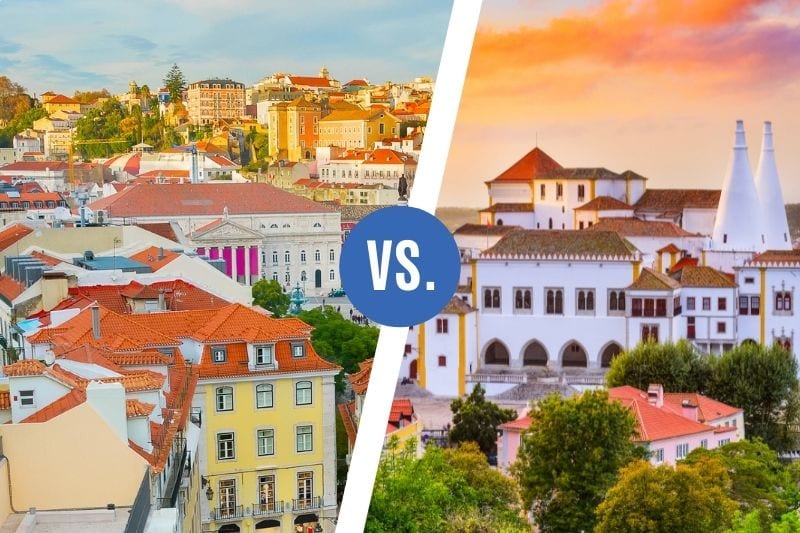
| Portugal Pros: |
Spain Pros: |
- High quality health care that can be free if you establish legal residency
- Extremely safe, welcoming country (third safest in the world)
- Roman and Moorish patrimony
- Schengen-member country
- Politically neutral
- Portugal Golden Visa program: a fast-track to residency that can lead to citizenship
- Excellent food and wine, with an emphasis on fresh seafood
- Home to Europe’s best beaches
- Oldest country in the Old World, with history that dates to 1139 B.C.
- Offers tax incentives for foreigners
- English is widely spoken
- Well-positioned for travel around the Continent
|
- High quality health care (seventh-best in the world according to the WHO)
- Offers the Spain Golden Visa program
- Roman and Moorish patrimony
- Schengen-member country
- Major cities with rich cultural scenes
- Mediterranean coastline and climate
- Excellent food and wine, with an emphasis on fresh seafood
- Spanish is an accessible language
- Gateway to Europe
- Well-positioned for travel around the Continent
- Diverse lifestyle opportunities, from cosmopolitan to vineyard to offshore island
|
| Portugal Cons: |
Spain Cons: |
- Restrictions on where you can purchase property to qualify for the Portugal Golden Visa program
- Old-World bureaucracy
- Bracing Atlantic-water temperatures at Portugal’s beaches
- Portuguese is difficult to learn
|
- Political unrest (strikes, marches, protests, etc.) is common
- High taxes, complicated taxation system
- Old-World bureaucracy
- Crowded beaches during peak season, over-development
|
Panama Versus Costa Rica
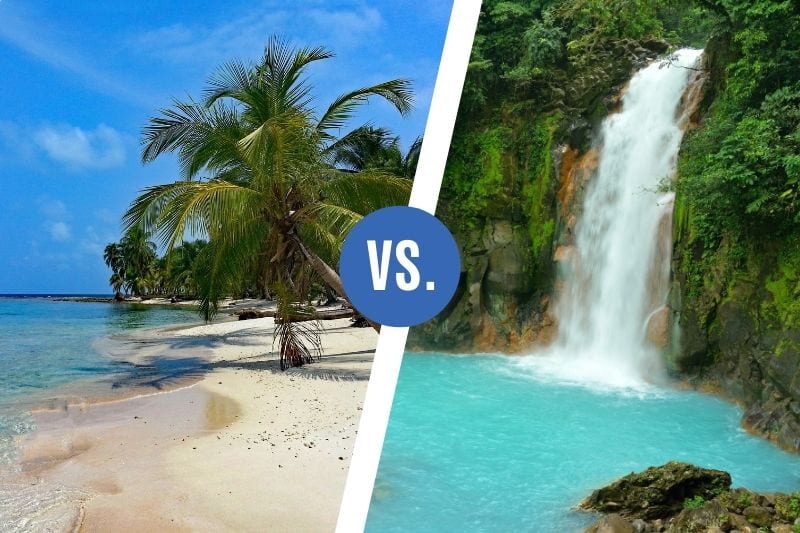
| Panama Pros: |
Costa Rica Pros: |
- World’s top offshore haven
- Bona fide tax haven (taxes income on a
jurisdictional basis)
- Uses U.S. dollar, meaning no currency exchange risk
- Generous and easy-to-maintain visa policies (including the Gold Standard of retirement visas, the Pensionado Visa)
- New residency by investment program
- Strong economy
- Quality, affordable health care
- Diverse lifestyle options (Pacific and Caribbean coasts, islands, mountains, and Panama City)
- Entrepreneur’s playground
- Super accessible, the “Hub of the Americas,” with direct flights to the States and Europe
|
- Long-standing reputation as an overseas retirement destination, well-established expat communities
- High-quality health care (higher ranked than
the States and Canada)
- Dual coastlines: Pacific and Caribbean
- Stunning natural environment: beaches, rain
forests, rivers, lakes, etc.
- Trailblazer in protection of environment and biodiversity
- Progressive policies: widespread LGBT acceptance, high literacy rates
- Stable government and economy
- Politically neutral, no military
|
| Panama Cons: |
Costa Rica Cons: |
- Mostly humid climate; long rainy season
- Poor service standards
- Mañana attitude
- High-quality health care isn’t evenly distributed across the country
|
- Road quality is among the worst in Central America
- High cost of living
- “Tico time”—the slow pace of life, doing administrative tasks can be painful
- High import fees for goods brought into
the country
- High costs to qualify for visa options (the Rentista Program requires US$2,500 in
monthly income)
|
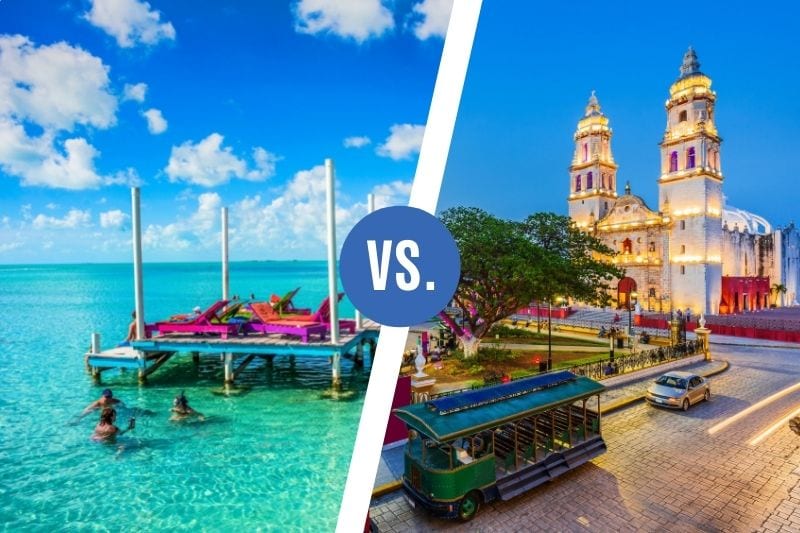
| Belize Pros: |
Mexico Pros: |
- Official language is English
- Commonwealth nation that uses rule of law
- Tax haven (taxes income on a
jurisdictional basis)
- Big, well-established expat communities
- Laid-back pace of life
- Belize dollar pegged to the U.S. dollar (1 Belize dollar = 50 cents)
- Amazing natural scenery that the government makes an effort to protect
- Mesoamerican Reef (largest barrier reef in the Western Hemisphere) is found offshore
- Top fishing, snorkel, and scuba destination (particularly at the Blue Hole)
- Qualified Retirement Program (QRP) is one of the world’s best retiree visas
- Several sites of historical significance
|
- Most accessible overseas retirement destination in the world for Americans and Canadians
- Home to the biggest population of North American expats in the world (2 million-plus)
- Familiarity—home to American franchises (from Walmart to Home Depot)
- Dual coastlines: both Pacific and Caribbean
- Diversity of lifestyles: many well-preserved Spanish-colonial cities, desert environments,
white-sand beaches, jungles, etc.
- Rich history, with the sixth most UNESCO World Heritage Sites in the world
- High-quality, low-cost health care
- Easy to get residency, generous tourist visas (180 days)
- Delicious and inexpensive food and drink
|
| Belize Cons: |
Mexico Cons: |
|
|
- Reputation for crime, gringo pricing
- Foreign restrictions on property ownership (can’t own within 100 kms of international
borders or within 50 kms of the coast without a fideicomiso)
- Over-development of tourist zones
- Not everyone speaks English
|
Thailand Versus Vietnam
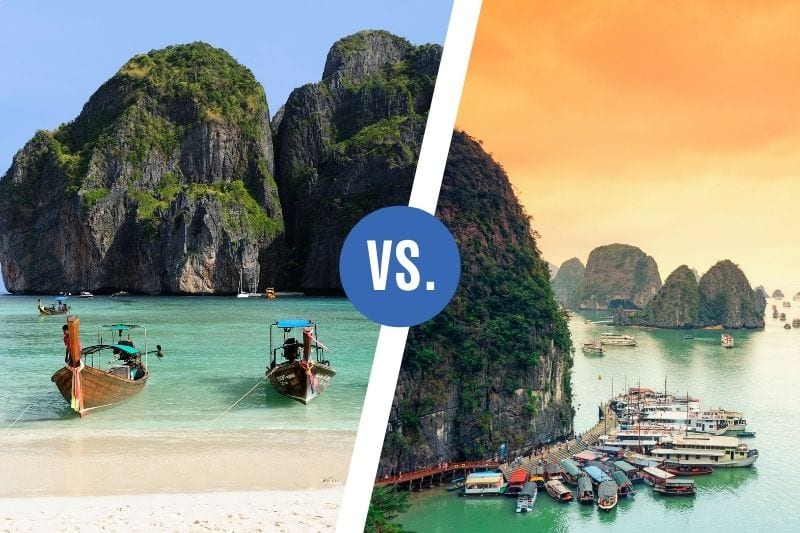
| Thailand Pros: |
Vietnam Pros: |
- Low cost of living
- “The Land of Smiles,” famous for having the friendliest locals in the world
- Big, well-established, diverse expat communities
- Local population speaks a good level of English
- World-class health care
- Naturally stunning landscapes, some of the most beautiful beaches in the world
- Top-rated, brand-name golf courses
- Luxury-level, inexpensive spa treatments
- World-renowned cuisine that costs next to nothing
|
- Extremely low cost of living; luxury lifestyles available for very low costs (even Social Security alone)
- Currency advantage of U.S. dollar to Vietnamese
dong (U.S. dollars go a long way here)
- Historically rich, culturally fascinating country
(multiple UNESCO World Heritage Sites)
- Diverse, naturally stunning landscapes, including extensive coastline and islands
- You can explore the country by train
- Luxury-level, inexpensive spa treatments
- Healthy, delicious, inexpensive local cuisine (including fresh coffee)
- French-colonial architecture and influence
|
| Thailand Cons: |
Vietnam Cons: |
- Restrictions on foreign ownership of property
- Pollution in major cities
- Scams and pickpockets in touristed areas, corruption
- Seedy tourism
- Frequent political disputes that can negatively affect quality of life
- Prone to natural disasters (typhoons, floods,
tsunamis, etc.)
- Geographically far from North America (time
and expense of international travel)
- Thai is difficult to learn
|
- Restrictions on foreign ownership of property
- Pollution in major cities
- Low English levels among locals
- Expats are sparse outside of major cities
- Vietnam does not have a tax treaty in place with the United States (though it does
with Canada)
- Prone to natural disasters (typhoons, floods,
tsunamis, etc.)
- Geographically far from North America (time and expense of international travel)
- Inability to learn local language
|











